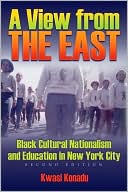Category Books
- Fiction Books & Literature
- Graphic Novels
- Horror
- Mystery & Crime
- Poetry
- Romance Books
- Science Fiction & Fantasy
- Thrillers
- Westerns
- Ages 0-2
- Ages 3-5
- Ages 6-8
- Ages 9-12
- Teens
- Children's Books
- African Americans
- Antiques & Collectibles
- Art, Architecture & Photography
- Bibles & Bible Studies
- Biography
- Business Books
- Christianity
- Computer Books & Technology Books
- Cookbooks, Food & Wine
- Crafts & Hobbies Books
- Education & Teaching
- Engineering
- Entertainment
- Foreign Languages
- Game Books
- Gay & Lesbian
- Health Books, Diet & Fitness Books
- History
- Home & Garden
- Humor Books
- Judaism & Judaica
- Law
- Medical Books
- New Age & Spirituality
- Nonfiction
- Parenting & Family
- Pets
- Philosophy
- Political Books & Current Events Books
- Psychology & Psychotherapy
- Reference
- Religion Books
- Science & Nature
- Self Improvement
- Sex & Relationships
- Social Sciences
- Sports & Adventure
- Study Guides & Test Prep
- Travel
- True Crime
- Weddings
- Women's Studies
A View from the East: Black Cultural Nationalism and Education in New York City » (2nd Edition)

Authors: Kwasi B. Konadu
ISBN-13: 9780815632061, ISBN-10: 0815632061
Format: Hardcover
Publisher: Syracuse University Press
Date Published: August 2009
Edition: 2nd Edition
Author Biography: Kwasi B. Konadu
Kwasi B. Konadu is an assistant professor of history at the Center for Ethnic Studies, City University of New York. He has written numerous articles on black nationalism and African American history.
Book Synopsis
In 1969, The East, a cultural and educational center for people of African ancestry, was founded by dedicated educators and progressive activists who came of age during the era of the Black Power movement. Although Brooklyn was the physical home of The East organization, its influence emanated throughout New York City and beyond, touching individuals and groups in the United States, the Caribbean, Africa, and Asia.
A View from The East represents a second edition of the previously published Truth Crushed to Earth Will Rise Again by providing expanded archival research and a contextualizing of the organization within the African American civil rights and black power movements. At the heart of The East was Uhuru Sasa Shule, an independent African-centered school whose curriculum and pedagogy were rooted in Kawaida philosophy and concepts of education for self-reliance. In addition, The East became a center for the arts. On weekends, it served as a literary salon and hosted concerts by black musicians. Many of the great jazz artists and poets performed there, as it became a well-known and highly sought-after venue. With fresh insight and great detail, Kwasi B. Konadu excavates the legacy of The East, exploring the confluence of cultural nationalism, education, economic self-sufficiency, and the arts during the Black Power period. Drawing on extensive interviews and primary research, Konadu vividly brings to life the people and events that shaped this remarkable institution and outlines the rich lessons it provides for future community building organizations.
Table of Contents
Subjects
 African American History
African American History  African American Regional History - Northeastern & Mid - Atlantic States
African American Regional History - Northeastern & Mid - Atlantic StatesAfrican Americans
 African American History
African American History  Politics and Government - History
Politics and Government - HistoryAfrican Americans
 African American - General & Miscellaneous
African American - General & Miscellaneous  Education
EducationAfrican Americans
 African American - General & Miscellaneous
African American - General & Miscellaneous  Law, Politics, & Government
Law, Politics, & GovernmentEducation & Teaching
 Educational Theory, Research & History
Educational Theory, Research & History  African Americans - Education
African Americans - EducationEducation & Teaching
 Social & Political Aspects of Education
Social & Political Aspects of Education  African Americans - Education
African Americans - EducationHistory
 African American History
African American History  African American History
African American HistoryHistory
 African American History
African American History  General & Miscellaneous
General & MiscellaneousHistory
 American History
American History  United States History - African American History
United States History - African American HistoryHistory
 American History
American History  United States History - Northeastern & Middle Atlantic Region
United States History - Northeastern & Middle Atlantic RegionHistory
 Political History
Political History  Political Theory & Ideology
Political Theory & IdeologyNonfiction
 All Nonfiction
All Nonfiction  Education - Social & Political Aspects
Education - Social & Political AspectsPolitical Books & Current Events Books
 All Politics
All Politics  Political Theory & Ideology
Political Theory & IdeologyNonfiction
 History
History  African American History
African American HistoryNonfiction
 History
History  American History
American HistoryNonfiction
 History
History  Political History
Political HistoryNonfiction
 Politics & Current Affairs
Politics & Current Affairs  All Politics
All Politics
